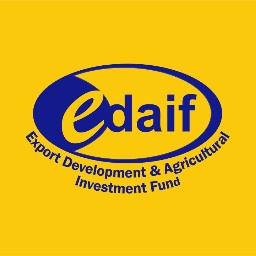 EDAIF logo
EDAIF logo
The Export Development and Agricultural Investment Fund (EDAIF) needs to be decentralised in such a way that it goes across the country to reach smallholder farmers and also cover a lot more crops than it currently supports, the Peasant Farmers Association of Ghana (PFAG) has said.
“EDAIF is known in some areas; but in some areas, too, farmers do not even know about it,” president of the association Abdul-Rahman Mohammed said in Accra, at an event to validate findings of research commissioned by the association into the fund’s activities.
“In terms of mango and cassava farming, EDAIF has done a lot; but we are saying that it should be extended to other crops like maize, soya beans, cotton and others,” he said.
The researcher, Joseph Yaro of the University of Ghana, intimated that the fund has so far been limited to “a few individual big farmers” who are not living up to a condition on them to support smallholders.
“So EDAIF will need to re-examine its strategy of helping Ghanaian agriculture. We are not saying they should stop supporting big farmers, but probably put in some measures that enable them to support the small ones,” Mr. Yaro said.
He appealed to EDAIF to make its operational procedures friendly by educating smallholders on its operations and also scrapping its pre-financing requirements.
“EDAIF should ensure the timely disbursement of funds to farmers, reassess their relations with input suppliers and ensure good quality inputs and timely supplies.”
EDAIF is an agency under the Ministry of Trade and Industry established in October 2000 by Act 582 as the ‘Export Trade Development and Investment Fund’ (EDIF).
It became operational in July 2001, and in 2011 Act 582 was amended to include also the provision of financial resources to enable the development and promotion of agriculture- related activities.
In January 2014 an Act 872 was established by parliament that enabled inclusion of the agricultural sector.
EDAIF provides through designated financial institutions (DFIs) a credit facility with an interest rate of 2.5% p.a. to the DFIs, then 12.5% to farmers for 1 to 5 years. It also provides interest-free grants.
The fund has over the years disbursed a total of GH¢199,335,585 -- of which 24% was grants.
In 2014 EDAIF disbursed about 81% (GH?101,179,112) of the total amount approved for the period. Over 51% of the disbursement went to the area of agro-processing as both grant and credit.